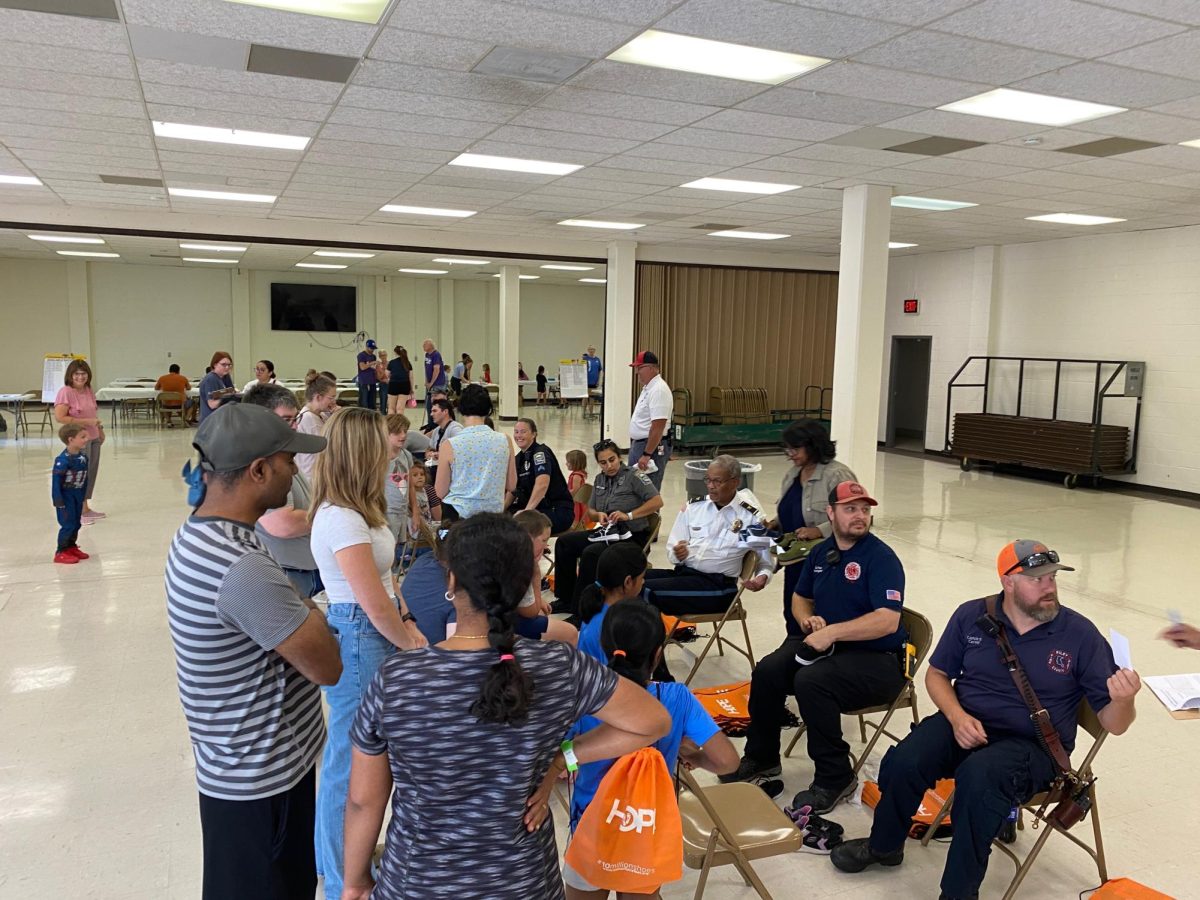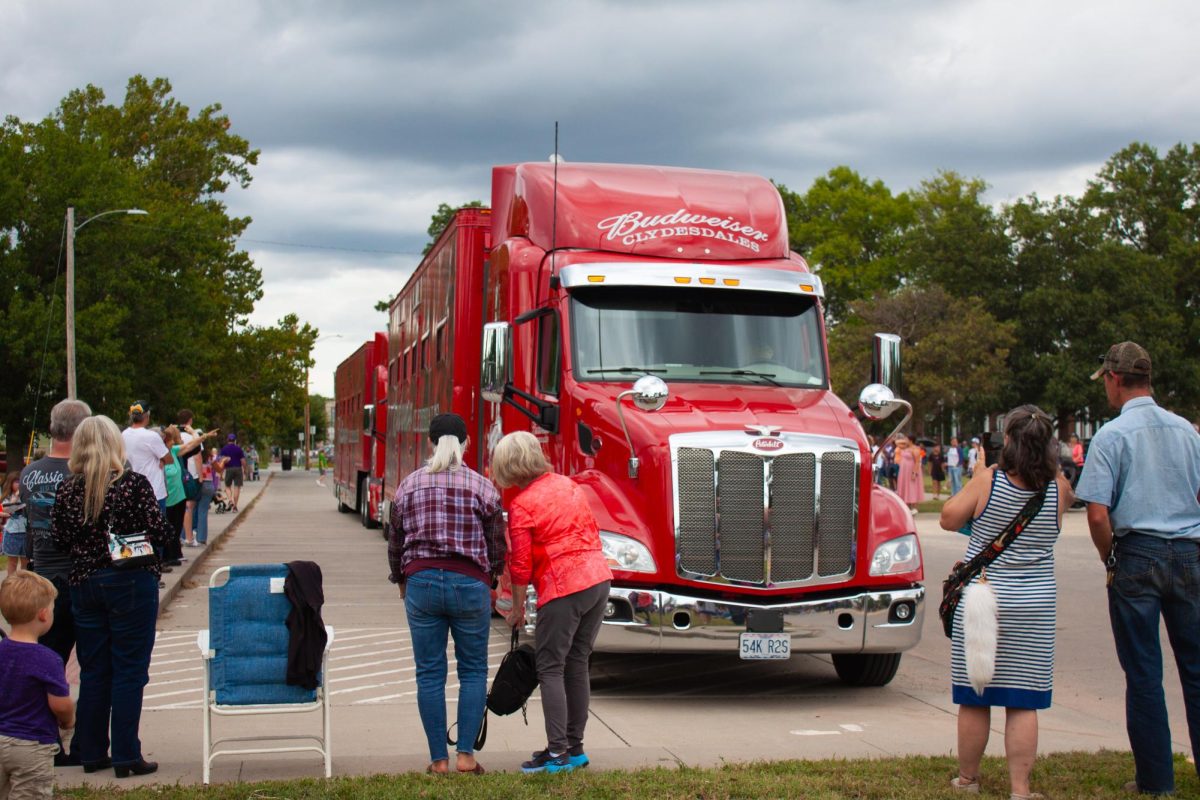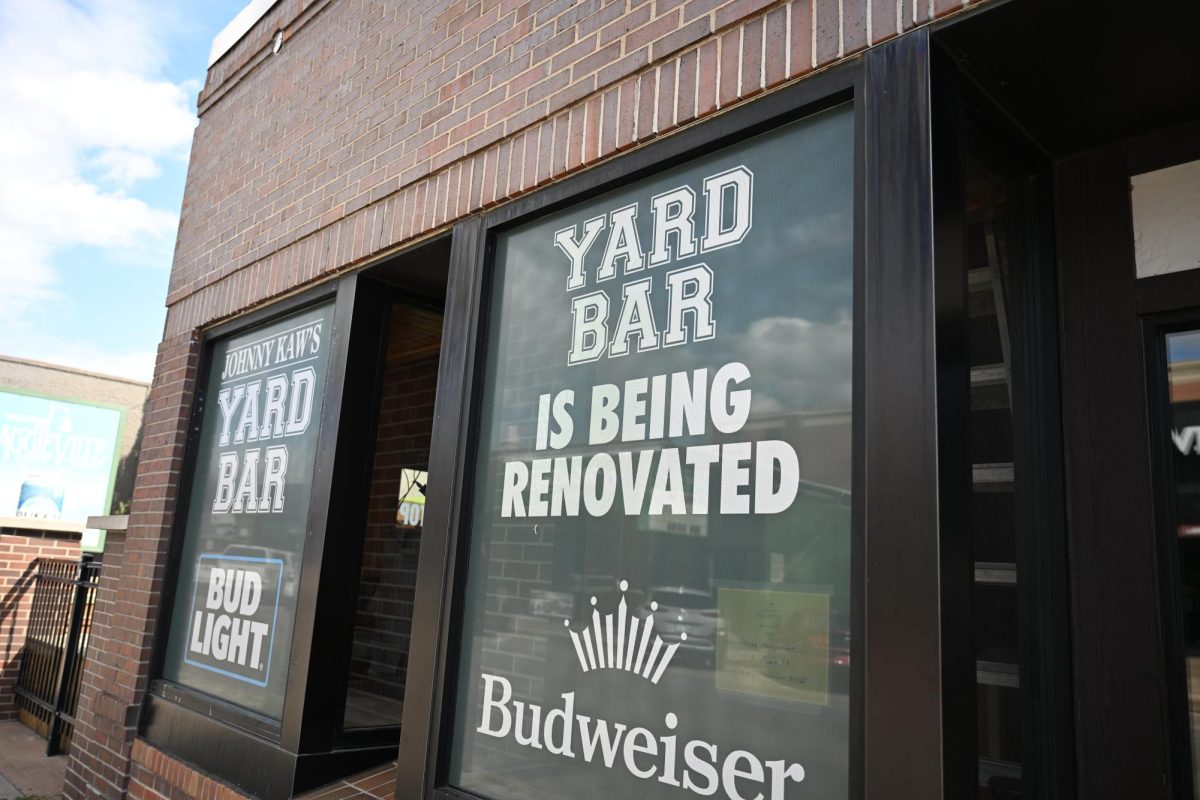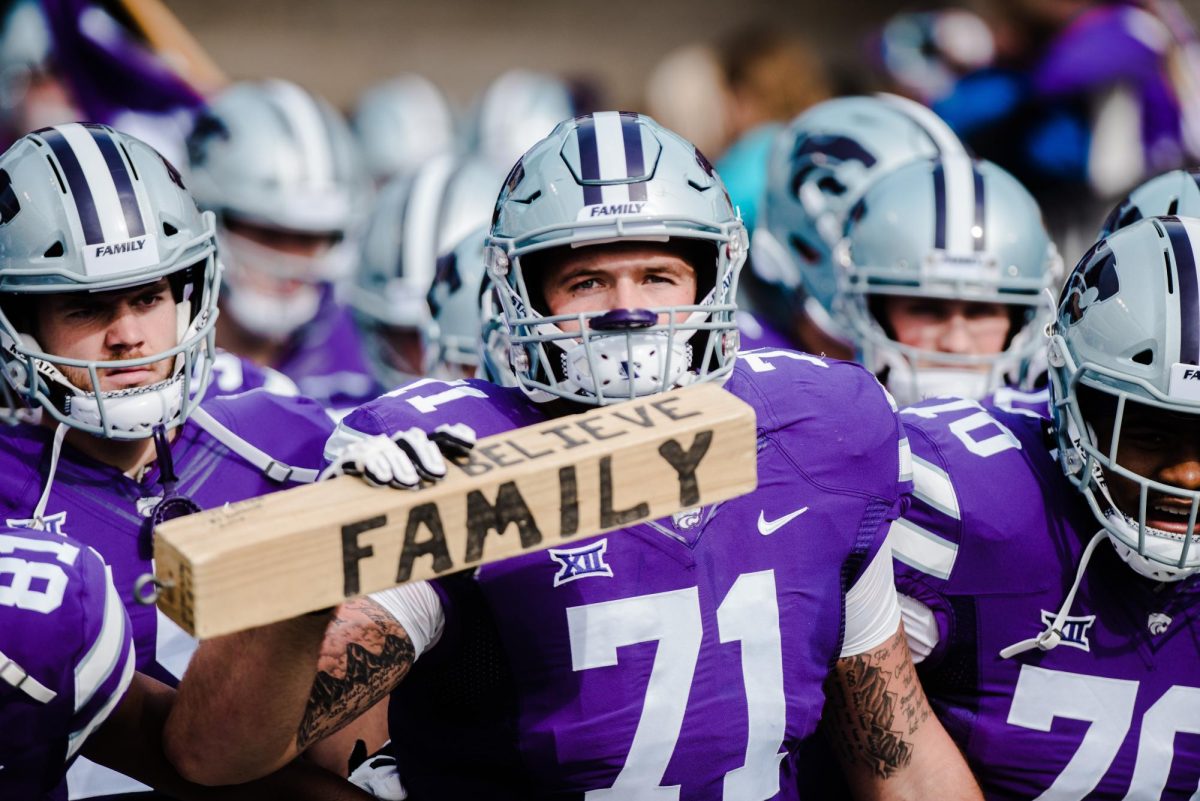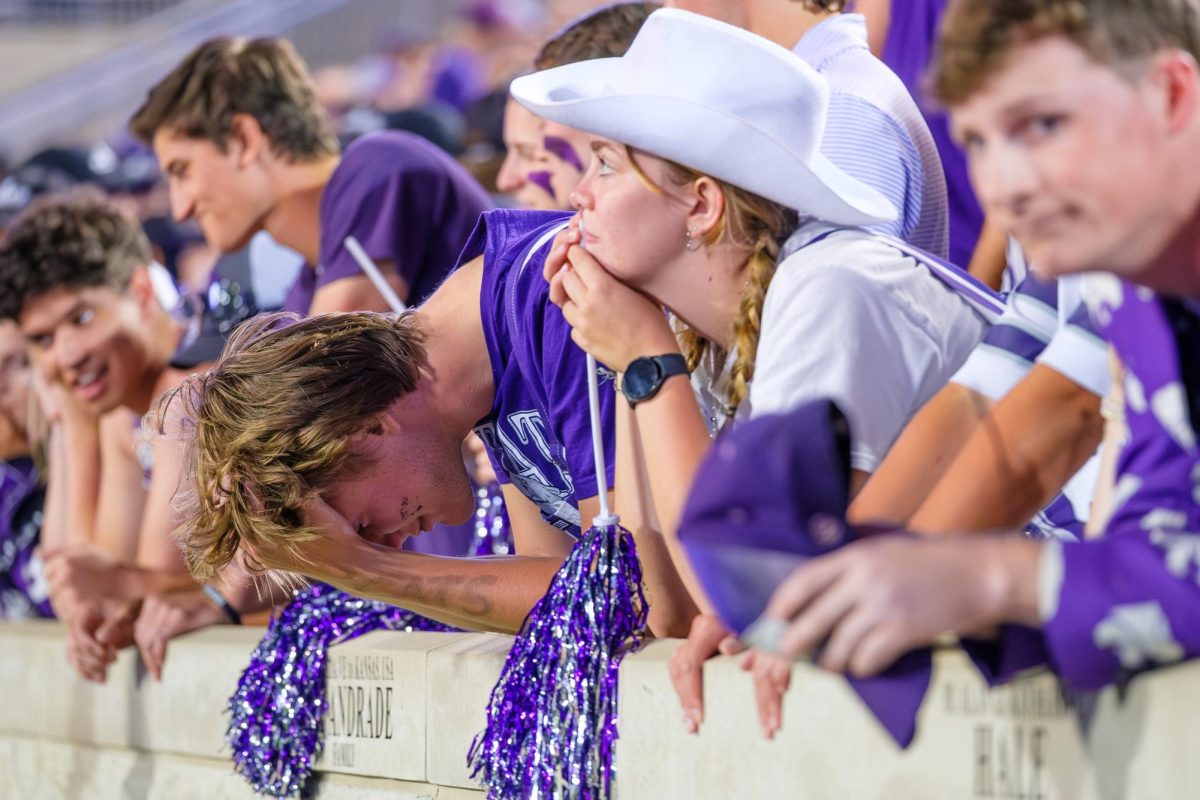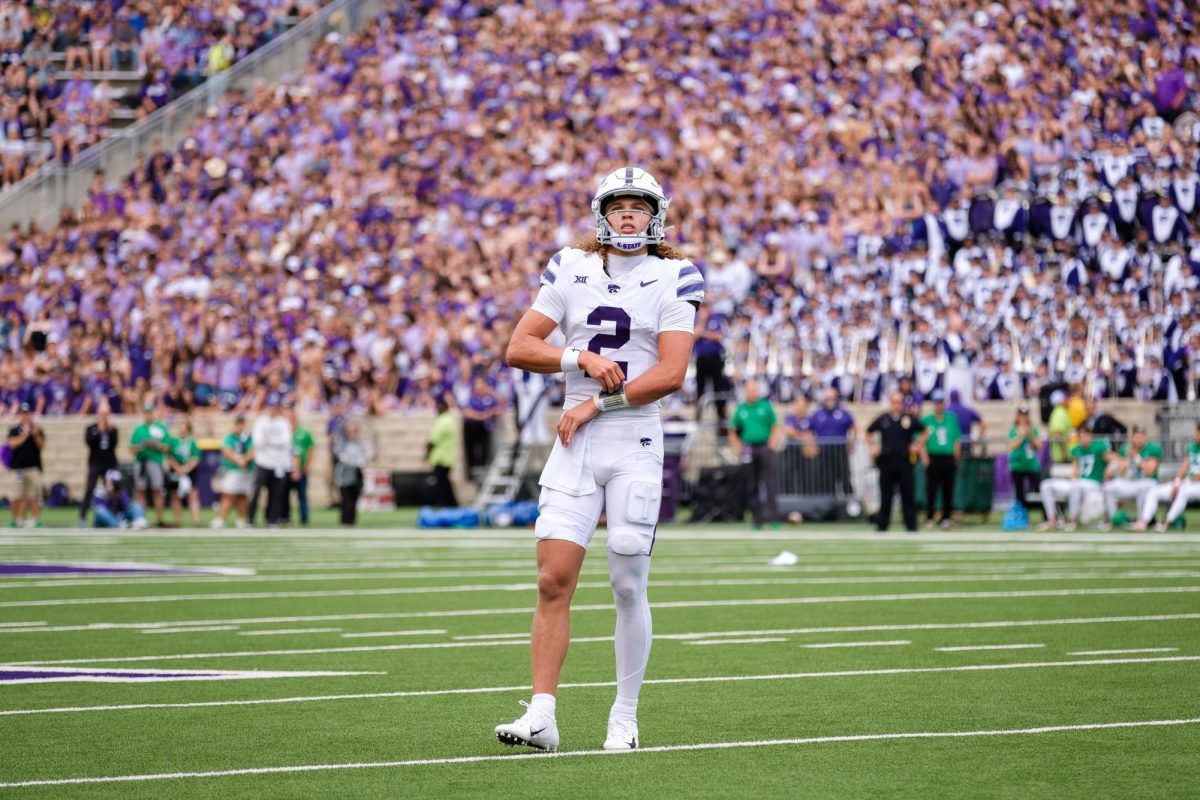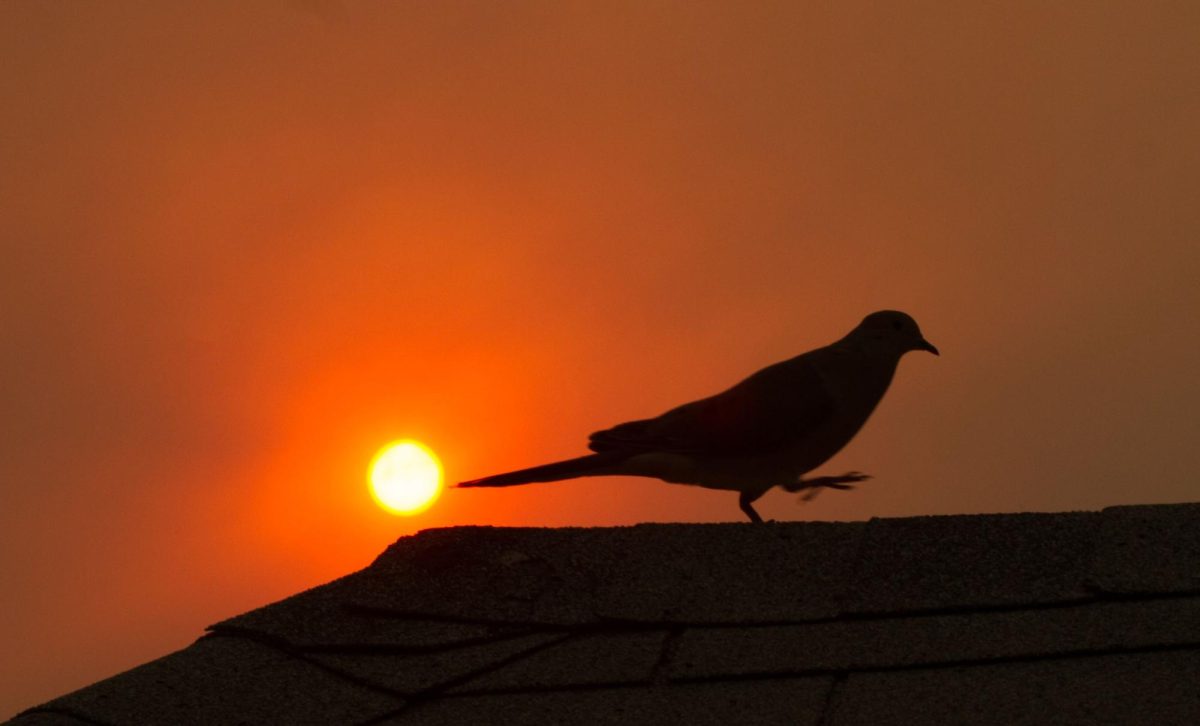Sitting idle on the tracks, a train car on the outskirts of Manhattan catches the eye with its strikingly ominous hues. Against a backdrop of deep red, bold black letters spell out the acronym for Missing and Murdered Indigenous Women. The stark contrast between the colors mirrors the urgency and gravity of the message, calling attention to a crisis often left in the shadows.
Across the United States and Canada, Native women and girls are taken or murdered at an alarming rate: ten times higher than the national average. The MMIW advocates for an end to these high rates of disappearances and murders.
“The red represents blood,” Melissa Poll, a Canadian settler scholar and Kansas State professor of social transformation studies, said, “The red hand, a common MMIW symbol, is for silencing women by murdering them or in other ways. I think the black … it is the contrast between the two, this kind of violence.”
During her postdoctoral work in Canada, Poll focused on theatrical projects highlighting issues in the indigenous community caused by settlers. One of these projects, an opera titled “Missing,” discussed murdered and missing Indigenous women.
“I think working on “Missing,” writing for my postdoc, it drove home to me how devastating it is for families, and just how the causes all lie with us as settlers,” Poll said. “Indigenous youth can be in really difficult positions caused by intergenerational trauma.”
The MMIW movement began in Canada around 2015 and spread to the United States shortly after. The movement has an active chapter in Wichita, Kansas
“We have four federally recognized nations in this state,” Poll said. “They have all experienced this. There are also Indigenous women in our community who may not be a part of those nations.”
K-State is on the ancestral lands of the Kansa, or Kaw people. The Indigenous Faculty and Staff Alliance was created in 2015 to address the need for support and greater visibility of Indigenous people and perspectives in our community.
“One of the things that have been really important to me, and to all of the Indigenous Faculty and Staff Alliance, is that though we have a land acknowledgment, we understand that our work absolutely does not end with it,” Poll said. “The land acknowledgment is the beginning. If performed with no adjacent action, it really doesn’t mean anything.”
While Manhattan does not have an MMIW chapter, there are many ways to help raise awareness and work toward systemic change to protect Indigenous women and girls.
“Listening to Indigenous people,” Poll said. “Going forward as you are voting, think about who is going to support Indigenous rights. Knowing whose land you are on and the history of that land and who has been here. If you are in a position to give money that is wonderful, but you can also give your time. Learn about the nations.”
Accompanying the MMIW message on the train car is the phrase, “No more stolen sisters.” This message packs a similar punch — this horrifying violence must come to an end.


